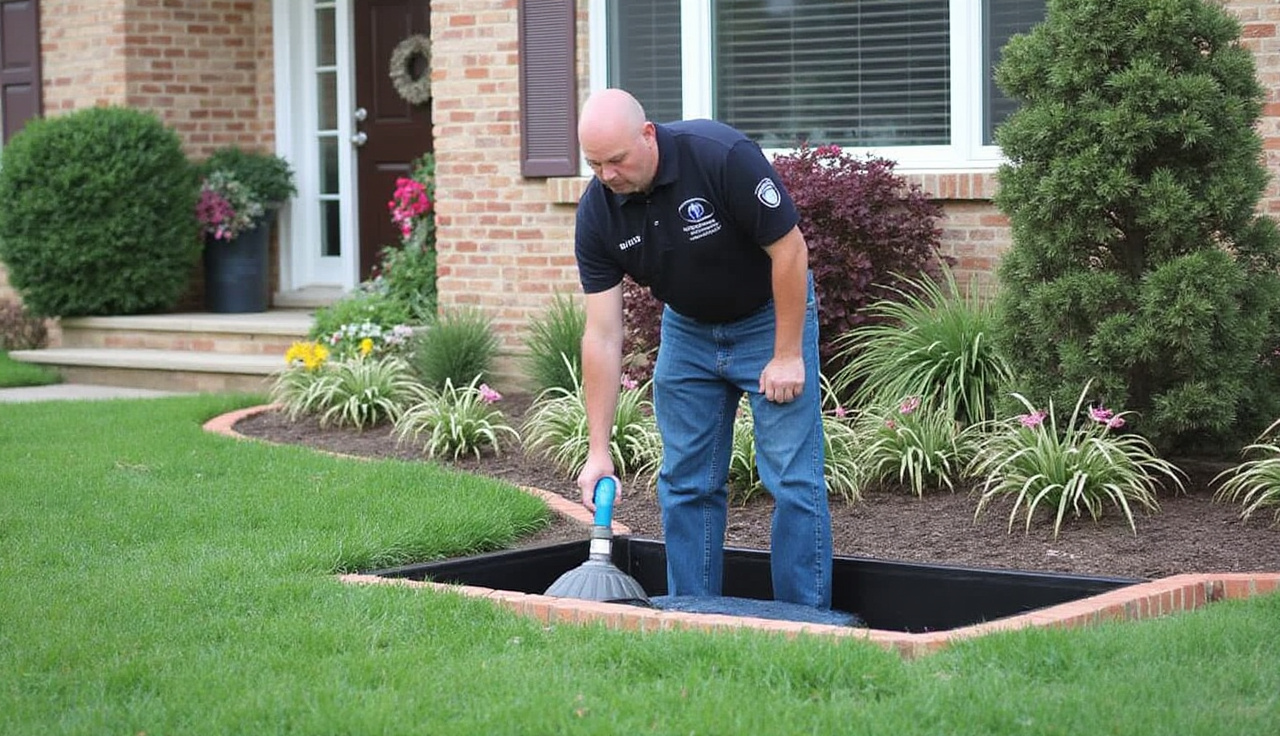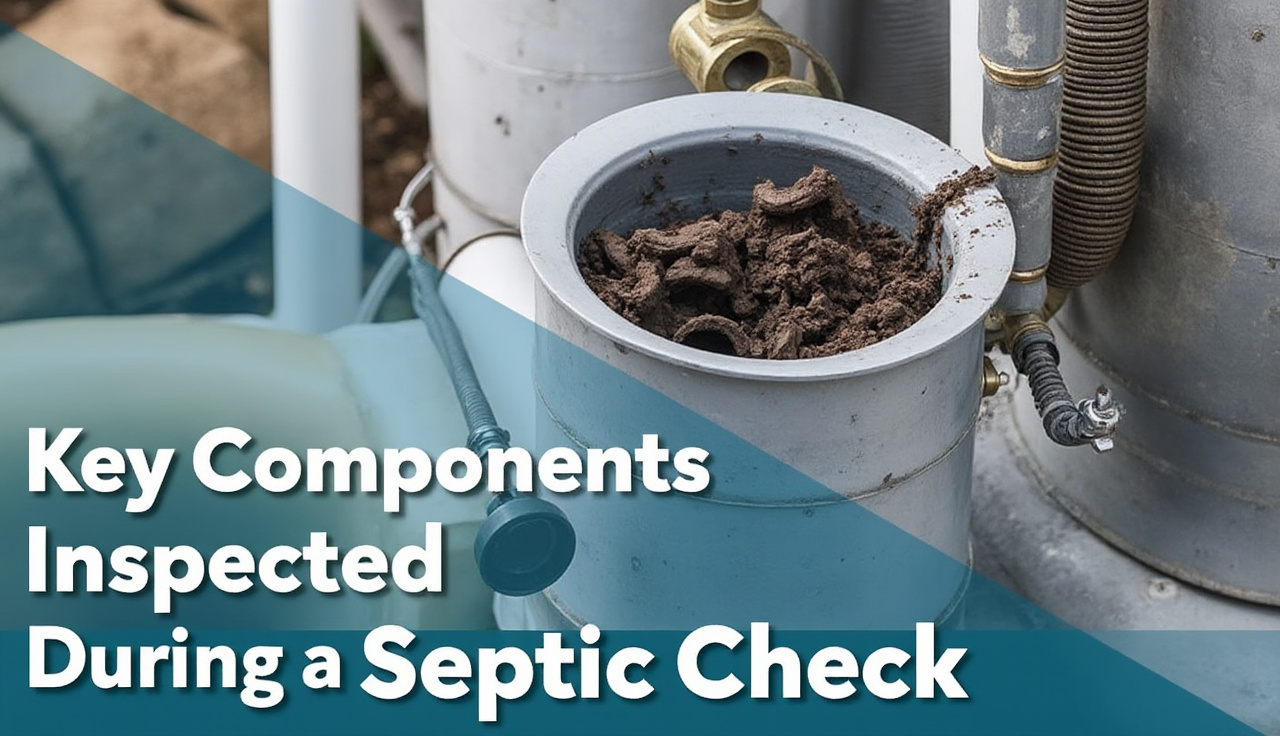Avoiding Costly Repairs and Replacements with Regular Septic Inspections
Regular septic inspections are essential to prevent expensive repairs and replacements. These inspections can identify issues early before they escalate into major problems, saving homeowners time and money. Here’s everything you need to know about the importance of regular septic inspections and how they can help you avoid costly repairs and replacements.
Table of Contents
Key Takeaway
- Regular septic inspections can identify potential problems early.
- Early detection helps prevent major repairs and system replacements.
- Septic system maintenance ensures efficiency and longevity.
- Inspections can address issues like leaks, blockages, and system failures.
- Professional services provide accurate assessments and solutions.
The Role of Avoiding Costly Repairs and Replacements with Regular Septic Inspections
Regular septic inspections play a crucial role in maintaining the health and efficiency of your septic system. By scheduling routine checks, you can catch minor issues before they become significant problems requiring expensive repairs or a complete system replacement.
How Septic Inspections Save Money
- Early Detection of Problems: Inspections can uncover leaks, blockages, and other issues that, if left unattended, could lead to system failure.
- Preventive Maintenance: Regular checks help maintain the system’s health, prolonging its lifespan and reducing the need for costly interventions.
- Complying with Regulations: Adhering to local regulations regarding septic system inspections can prevent fines and legal issues.
Common Issues Identified During Septic Inspections

Septic inspections can reveal various problems that, if not addressed, can cause significant damage to your system. Some common issues include:
- Clogged Drains: Accumulation of solid waste can block drains, leading to backups and slow drainage.
- Leaking Tanks: Cracks or damage to the septic tank can cause leaks, contaminating the surrounding soil and groundwater.
- System Overloading: Excessive water usage or inadequate tank capacity can overwhelm the system, causing failures.
Common Septic System Issues and Their Causes
| Issue | Cause | Potential Damage |
|---|---|---|
| Clogged Drains | Solid waste buildup | Backups, slow drainage |
| Leaking Tanks | Cracks, structural damage | Soil and groundwater contamination |
| System Overloading | Excessive water usage, small tank | System failure, overflow |
The Inspection Process: What to Expect
Understanding the inspection process can help you prepare and ensure that your septic system is thoroughly evaluated. During an inspection, a professional will typically:
- Visual Inspection: Check for signs of leaks, proper drainage, and overall system health.
- Tank Pumping: Pump out the tank to remove sludge and scum, allowing for a more detailed inspection.
- System Testing: Test the system’s components, including pumps, alarms, and filters, to ensure they function correctly.
Steps in a Septic System Inspection
| Step | Description |
|---|---|
| Visual Inspection | Assess the exterior condition of the tank and components |
| Tank Pumping | Remove sludge and scum for a thorough inspection |
| System Testing | Evaluate the performance of pumps, alarms, and filters |
| Diagnostic Tests | Conduct tests to check for blockages, leaks, and system efficiency |
How Often Should You Inspect Your Septic System?

The frequency of inspections depends on several factors, including the size of your tank, household usage, and local regulations. Generally, it is recommended to have your septic system inspected:
- Every 3-5 Years: For a typical household, this timeframe allows for early detection of potential issues.
- Annual Inspections: More frequent inspections are advisable for larger households or commercial properties.
Factors Affecting Inspection Frequency
- Household Size and Usage
- System Age and Condition
- Local Regulatory Requirements
- Previous System Performance and Issues
DIY vs. Professional Inspections: What’s the Best Choice?

While homeowners can perform some routine checks, professional inspections are essential for a thorough evaluation. Professionals have the expertise and equipment to identify and address issues that may not be visible to the untrained eye.
Benefits of Professional Inspections
- Expertise: Professionals can accurately diagnose and fix problems.
- Equipment: Specialized tools like cameras and pumps ensure a detailed inspection.
- Regulatory Compliance: Professionals are familiar with local regulations, ensuring your system meets all requirements.
Key Components Inspected During a Septic Check

During a septic inspection, several key components are evaluated to ensure the system is functioning correctly.
Tank and Lid
Inspectors will check the tank for cracks, leaks, and the integrity of the lid. A damaged lid can allow debris to enter the tank, causing blockages and other issues.
Drain Field
The drain field is assessed for signs of flooding, proper drainage, and any blockages that may impede the system’s performance.
Pumps and Alarms
If your system includes pumps and alarms, these will be tested to ensure they are operating correctly and providing the necessary alerts for maintenance.
Filters
Filters are checked for cleanliness and effectiveness. Dirty or clogged filters can lead to system inefficiencies and potential failures.
The Long-Term Benefits of Regular Septic Inspections
By investing in regular septic inspections, you are safeguarding your property and investment. The long-term benefits include:
- Prolonged System Life: Regular maintenance can extend the lifespan of your septic system, delaying the need for replacements.
- Improved Efficiency: A well-maintained system operates more efficiently, reducing overall costs.
- Health and Safety: Preventing system failures protects your family’s health and the environment from contamination.
Key Takeaway
Regular septic inspections are a crucial part of home maintenance. They help identify and address issues early, preventing costly repairs and replacements. By scheduling routine checks, you ensure your septic system remains efficient, safe, and compliant with local regulations.
For the best results, rely on professional services to conduct thorough inspections and provide expert solutions.
By following these guidelines and understanding the importance of regular septic inspections, you can avoid the headache and expense of major repairs and replacements. Investing in regular maintenance is a smart and cost-effective way to keep your septic system in top condition for years to come.

